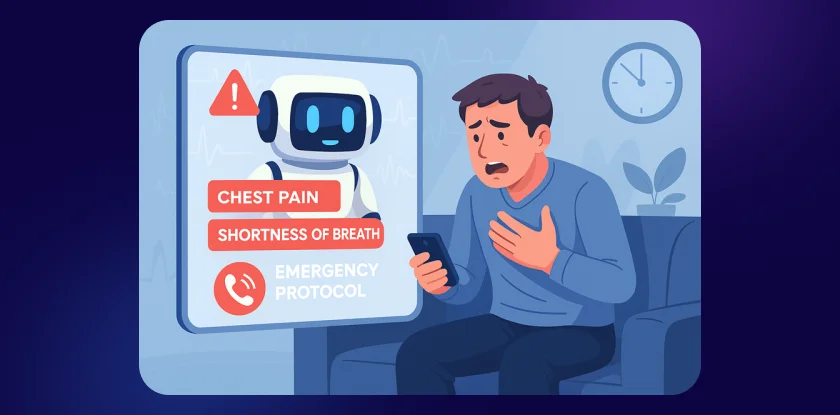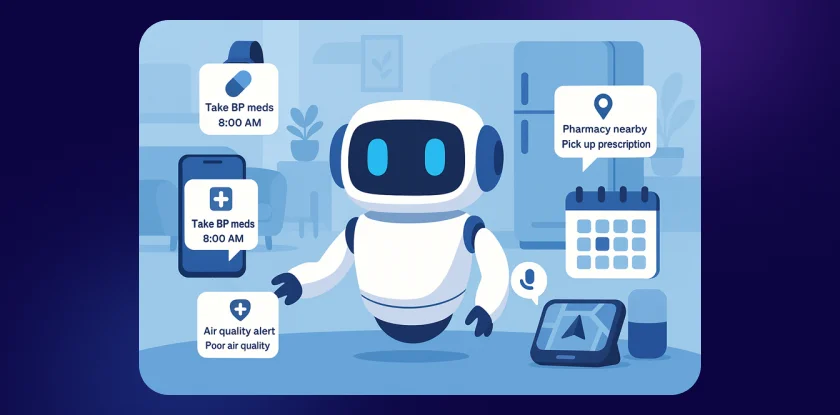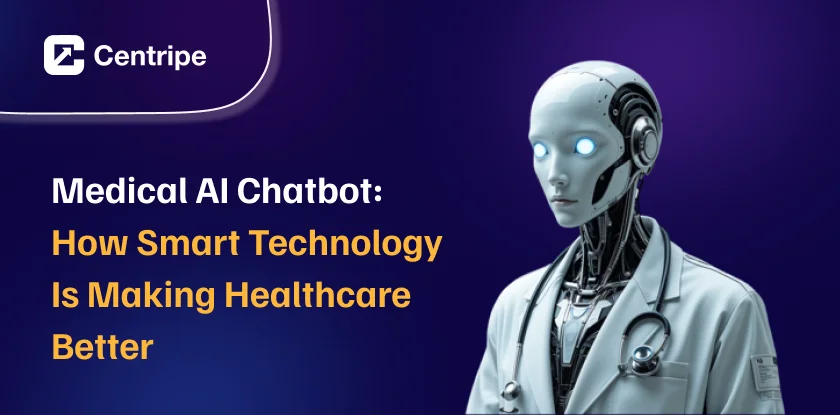Healthcare is changing fast because of smart computer programs called AI. These programs can talk to patients.
They answer health questions and help doctors improve their work. It builds frustration among us when we call for an emergency and there is no one to pick up. Well, no more!
Today, we are going to talk about how medical AI is changing the norms. It has evolved from being just a part of a system to a whole functional system.
What Makes Medical AI Different from Regular Chatbots
Medical AI chatbots differ greatly from the basic chatbots found on shopping sites.
These are specially trained to understand health problems and medical language. They’ve learned from millions of real medical cases.
This helps them tell apart serious issues from minor ones. Medical chatbots understand medical context. They have a vast resource of data, and continuously learn from it.
They are built with ‘clinical reasoning.’ This means that they think through health problems step by step, just like the doctors do. Each step builds up to the conclusion.
From asking follow-up questions that link different AI symptom checkers, to giving advice based on any historical illness, they are far more high-tech than we can imagine.
Regular chatbots just match your words to set answers. But medical AI looks at your symptoms as a whole to understand what they might mean.
How AI Chatbots Handle Health Emergencies Differently

When you have a serious health problem, every minute counts, medical AI chatbots are built to manage emergencies better than regular systems.
They use “red flag protocols,” which are special rules. These help them quickly spot life-threatening situations.
If you mention severe chest pain, difficulty breathing, or sudden headaches, these AI chatbots quickly step in. They immediately start emergency protocols.
What’s clever is how they deal with the gray areas. These are situations that could be serious but aren’t obvious emergencies. AI chatbots use risk assessment tools.
They check your age, medical history, and current medications. This helps them decide how urgent your situation is.
They can stay on the line with you while calling emergency services. They can also connect you directly to emergency dispatchers through integrated systems.
Unique Ways AI Helps with Family Health Management
Medical AI chatbots are stepping up as family health managers in ways that many people don’t see. They can track health patterns for whole families.
Now this thing will help identify genetic health risks too. So if there is any common illness, then its impact is identified.
If one member has diabetes, the healthcare chatbot will remind others to get tested. And also, giving out personalized prevention tips based on history. Amazing, isn’t it?
These systems help you keep track of health information for older parents or family members with memory problems.
The AI tracks medications, doctor appointments, and health instructions. So, it helps if someone forgets. It can send medication reminders to the patient and their adult children. This keeps everyone informed about important health needs.
How AI chatbots learn your personal health language
People describe their health issues in various ways. Some say, “My tummy hurts,” while others might say, “abdominal discomfort.”
AI chatbots learn how you talk about your health. They remember your favorite words and phrases.
They adapt to how you communicate. If you like short, direct answers, they change to match.
The Virtual Medical Assistant keeps track of your health concerns. It can also refer to past chats to ensure better care for you.
Everyone has a different routine, you think human agents can keep track of that? So will the chatbot be able to do the unthinkable?
It easily maintains the data by itself, learn from daily routines, and gives the best health advice, which is aligned with your timetable.
Also, they notice changes in the way of communication that might point to depression, anxiety, etc.
Revolutionary Integration with Daily Life Activities

- AI chatbots can link to your grocery apps. They suggest healthy foods based on your needs.
- They can check your work schedule. Then, they recommend the best times for taking medicine or booking doctor appointments.
- Some chatbots connect to your car’s GPS. They remind you to pick up prescriptions when you’re near a pharmacy.
- They also link with your smart home devices. This helps check air quality for those with asthma or allergies.
- AI can monitor your social media activity (if you allow it). It can notice mood changes or lifestyle factors that affect your health.
- These systems can work with your employer’s health programs. They remind you about wellness activities at work.
Future Capabilities That Will Transform Healthcare
The new wave of medical AI chatbots will have abilities that feel like science fiction. They are already being tested.
Some systems can detect early signs of Parkinson’s disease by watching how you type on your phone.
People are learning to recognize signs of depression or anxiety by noticing changes in their selfies over time. This includes shifts in eye brightness or smile patterns.
These chatbots will also become “health translators” between you and your doctors.
They will collect detailed medical information from your doctor. Then, they will explain it in simple words you can easily understand. They can also help you get ready for doctor visits.
They arrange your symptoms and questions in a way that doctors can easily grasp.
What’s most exciting is their growing skill to predict health issues before you feel unwell.
These AI systems watch data from your devices and compare it to millions of patients.
They can signal heart issues, infections, or other health problems days before symptoms arise.
This early warning system could stop many emergency room visits. It can also save lives by spotting issues while they’re still easy to treat.
Conclusion
Medical AI chatbots represent a complete change in how we think about healthcare. They’re more than just question-answerers. They’re your personal health partners.
They know your medical history. They understand how you communicate. Plus, they offer 24/7 support just for you.
These systems keep learning and getting better. They provide quality healthcare to everyone, no matter where they live or when they need it.
